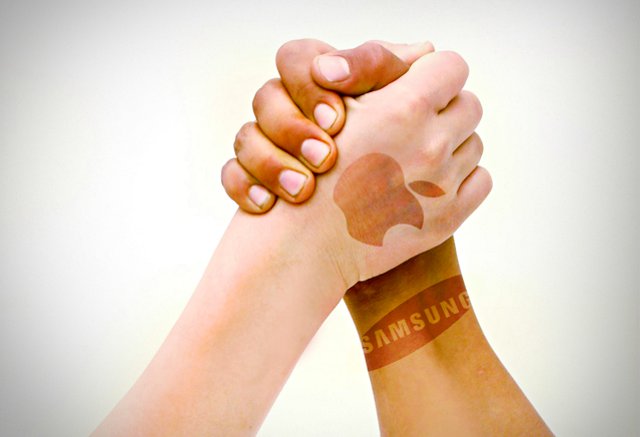 “The smartphone in your hand is a marvel of innovation, packing sophisticated computing and communications technologies into a sleek digital device,” writes Steve Lohr, in an article posted on the New York Times‘ website earlier today. “It is also a litigation magnet.”
“The smartphone in your hand is a marvel of innovation, packing sophisticated computing and communications technologies into a sleek digital device,” writes Steve Lohr, in an article posted on the New York Times‘ website earlier today. “It is also a litigation magnet.”
The many specific and detailed aspects of the Apple-Samsung case, in which a decision was reached by a federal jury yesterday in San Jose, Calif., were indeed so complicated and confusing that the jury verdict form required “the jurors to consider 773 individual infringement claims at issue,” according to a Cult of Mac post published on August 24.
Nevertheless, the jury spent just three days–approximately 22 hours–on deliberations before ultimately returning its verdict of $1.05 billion in damages, which Samsung must pay to Apple for infringing on six of Apple’s patents, including “double-tap zoom” and “pinch & zoom.” (Apple had requested more than $2.5 billion in damages.)
As Steve Lohr writes in the aforementioned New York Times article:
“The case underscores how dysfunctional the patent system has become. Patent litigation has followed every industrial innovation, whether it is steam engines, cars, phones or semiconductors, but the smartphone wars are bigger, global and unusually complex.
“And it is the courts, rather than the patent office, that are being used to push companies toward a truce. In the end, consumers may be the losers.”
According to reports, Samsung plans to challenge the jury’s decision. Scroll down to read Apple’s official statement and Samsung’s official statement regarding the verdict, as posted on übergizmo:
Apple’s official statement:
“We are grateful to the jury for their service and for investing the time to listen to our story and we were thrilled to be able to finally tell it. The mountain of evidence presented during the trial showed that Samsung’s copying went far deeper than even we knew. The lawsuits between Apple and Samsung were about much more than patents or money. They were about values. At Apple, we value originality and innovation and pour our lives into making the best products on earth. We make these products to delight our customers, not for our competitors to flagrantly copy. We applaud the court for finding Samsung’s behavior willful and for sending a loud and clear message that stealing isn’t right.” (Katie Cotton, PR employee at Apple)
Samsung’s official statement:
“Today’s verdict should not be viewed as a win for Apple, but as a loss for the American consumer. It will lead to fewer choices, less innovation, and potentially higher prices. It is unfortunate that patent law can be manipulated to give one company a monopoly over rectangles with rounded corners, or technology that is being improved every day by Samsung and other companies. Consumers have the right to choices, and they know what they are buying when they purchase Samsung products. This is not the final word in this case or in battles being waged in courts and tribunals around the world, some of which have already rejected many of Apple’s claims. Samsung will continue to innovate and offer choices for the consumer.” (Samsung)
Finally, as reported earlier today by Chris Meadows on The Digital Reader, the Apple-Samsung case being tried in South Korea came to its conclusion on August 24 as well. Visit Wired‘s Gadget Lab for the details of that decision.
































The US Patent office is a complete shambles and has been for many years.
It approves Patent applications with a rubber stamp and pockets the fees – leaving the courts to decide on patents.
This hurts the public enormously ! Why ? Because Major companies, with deep pockets register thousands of ‘so called’ patents on every possible wacky or simple idea possible every month, and by doing so almost completely swamp all real innovation by small business or individuals.
Those small businesses or individuals who do manage to gain patents are forced to defend them against multimillion dollar corporations who basically are free to trample over patents because they have deep pockets.
In this case Apple was always going to win. All they had to do was put a few Samsung phones in the jury’s hands alongside an iPhone and ……… the conclusion is as obvious as the noses on their faces.
Were there to be an adequate Patent office in the US, approving and disqualifying patent applications in a professional and adequate way, Apple’s patents would have held vastly more weight and it’s competitors would have been infinitely less willing to break Apple’s professionally approved patents and more willing to innovate themselves.
A win in court may not result in a win in the market place. If Apple focuses on lawsuits, they may lose sight of their very successful marketing strategy.
Apple products are already very expensive and removing competition will make that worse. The ebook price fixing class action suit should signal how Apple feels about gouging.